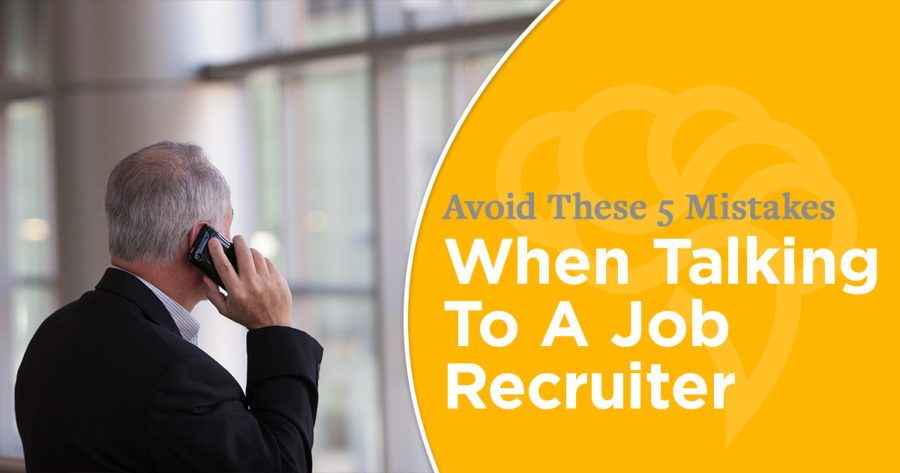Stop Screwing Up Your Phone And Video Interviews – Read These 5 Articles

I had many phone screens before I realized that “screen” was not the right word to describe what was happening on these phone calls.
Words that better describe these phone “screens” include evaluation, assessment, examination, investigation…
Interview.
These phone “screens” were actual interviews.
Needless to say, I bombed the first few phone interviews I had because I treated them as if they were just screenings.
I assumed that these phone calls were just a formality to see if I really was the person my resume said I was.
But, when I got on the phone, they had many questions that I was not prepared to answer.
For one phone interview, I was actually doing an experiment at the same time as the interview.
Very bad choice.
I was tired of having these phone calls and never hearing anything back.
All the positions I had interviews for I knew I would be a great fit.
I had all the skills they wanted.
Suddenly, I realized the reason why they called me — on paper, I was a good candidate but I kept screwing up once they had a chance to talk to me.
Oh, man.
I needed to change my approach.
For the next phone interview, I was going to prepare just as much as I would for an in-person interview.
I wrote out answers to interview questions, I thought of questions to ask them, and I did a mock interview with some friends.
I scheduled time to be out of the lab and in a quiet place during the interview.
This extra preparation paid off, and that next phone interview led to an in-person interview.
Why Performing Well In Your Screening Interview Is The Only Way To Get Hired

If you’ve been invited to a phone or video interview, you’ve already beat out most candidates.
Because, 98% of candidates are eliminated by the initial resume screen (Workopolis).
If someone takes the time to get on a phone call with you, they are demonstrating that you are worth their time.
You are in the running for the position.
So, you must take your preliminary or screening interview seriously, whether it’s with a hiring manager, a recruiter, or someone else at the company.
This first person you talk to is the gatekeeper.
And, as the gatekeeper, it’s their job to screen out even more candidates.
If you’ve got a screening interview, you’ve avoided the resume reject pile, but now it’s up to you to prove that you deserve to move on to the next step.
You must prove that you are a candidate they want to learn more about.
As soon as your screening interview begins, you must be ready to “wow” your interviewers.
You need to feel confident.
The only way to feel confident is to be well prepared.
89% of executives say being unprepared in an interview will keep you from getting hired (Moneyish).
So, how should you prepare for a screening interview?
Are there other things to prepare for when you know your interview is going to be over the phone or via video chat?
Yes.
Do not just “wing-it” for your screening interview, or you can kiss the opportunity for an onsite interview and a job offer goodbye.
Cheeky Scientist Top 5 Phone/Video/Recruiter Interview Articles
A screening interview is an important step in the interview process.
It is not just a formality.
It is an interview.
You are being judged.
And, there are particular nuances to phone and video interviews that you need to know in order to be successful.
A screening interview is a part of the job search process — so, you need to prepare.
Understanding and executing a good phone or video interview is the only way you are going to get to the onsite interview stage, and ultimately get the job offer.
Here are the top 5 Cheeky Scientist articles to help PhDs ace their next screening interview…

Why PhDs (Like Me) Fail Video Interviews — Here’s What To Avoid.
Many employers are moving towards the use of video interviews.
Video interviews allow an employer to get a better feel for the fit of a candidate before they are brought in for an onsite interview.
It saves them both time and money.
But, the video interview is a unique type of interview.
A video interview requires that you do all the preparations that you would for an in-person interview, plus creating the right interview environment.
A video interview can actually be very challenging, but many PhDs write these video interviews off as just a formality.
This is wrong.
Your performance, appearance, and behavior during a video interview are being judged.
This is where you need to prove to the company that you are a well-qualified candidate who will be a great fit for the position.
And, to do that, you need to be prepared.
This article address the massive mistakes PhDs often make during video interviews, and how you can avoid these issues.

How PhDs Must Prepare For A Job Interview With Top Recruiters
Most industry interviews follow a predictable format.
This includes the interviews that you will have with recruiters.
What most job candidates don’t realise is that from the moment you step foot into the company building, you are under evaluation.
Everything you say and do is being considered and being used to decide if you are the right candidate for the job.
This scrutiny requires that you are very well prepared at every stage of the interview process.
From your screening interview, to your onsite interview, everything you do matters.
Not preparing correctly for an industry interview means throwing away all the work you put into getting there.
A great resume and a high-quality internal referral can get you to the door, but it’s up to you to prove that you should be let inside.
This article provides concrete and practical strategies you should implement at every stage of the interview process.

Avoid These 5 Mistakes When Talking To A Job Recruiter
It is impossible to confidently maneuver your way through the hiring process without thoroughly understanding it.
Could you have earned a PhD without understanding every aspect of your project?
No, of course not.
And, your job search is the same.
If you don’t fully understand what is going on at every stage of the job search process, you will be out-performed every time.
This includes interviews that you have with recruiters.
Every conversation you have with recruiters is an evaluation.
So, you need to understand what the recruiter is looking for and how not to annoy them.
Remember, recruiters are sometimes the only ones that have access to roles which could be your entry into your dream job.
Learning how to speak with a recruiter is essential.
This article contains insider tips from a recruiter on the mistakes that you must avoid when speaking with recruiters.

My First Interview Phone Screen Was At 1AM My Time. Here’s What Happened.
A phone screen is the first step towards getting a job offer.
It’s the first step towards the finish line — where you will have a job offer in-hand.
But, if you trip and fall on this first step, you will never reach the end of the hiring process, and you will never get hired.
A phone interview is likely the first time you will interact with the company as a job candidate.
It is your first impression and you only get one shot at this.
So, be prepared.
Remember, it’s not just a casual conversation.
This is where you need to shine and persuade the other person that you are the best candidate for the job, and it would be silly for them to not bring you in for an onsite interview.
As a PhD, you are a great industry job candidate, but you must communicate that to your interviewers at every step along the application process.
This article details 10 tips to ensure that your initial phone interview lands you an in-person interview.

Proven Tips On How To Prepare For And Nail A Phone Or Skype Interview
It’s nerve racking to get on a phone or video call with a total stranger.
It’s even more anxiety-inducing when you realize that this is a person who can decide whether you get a job or get rejected.
Talk about stressful.
Before a company will pay to have you visit in person, they want to be as sure as possible that you’re a worthy candidate.
This means that you will probably have to do several phone and/or video interviews before you move onto an in-person interview.
You are going to have to “wow” the other person several times so you can make it to the next step.
So, how can you prepare for the unique situation of a phone or video interview?
This article discusses proven strategies PhDs have used to ace their phone or video interview and get called back for an onsite visit.

The hiring process is long and arduous. From resume to job offer, there are many, many places where you can screw everything up.
PhDs will spend days on their resume and spend months networking to get a referral.
Perhaps you even did a mock interview with a friend.
But, an integral part of the hiring process that many PhDs overlook is the screening interview.
These are the interviews you have over the phone or via video, where the other person is deciding if you are worthy of an in-person interview.
These calls are not formalities — they are evaluations.
They are deciding if you are the right candidate and if they want to get to know you better.
If you do not learn how to properly prepare for these screening interviews, you will not make it to the onsite interview or get a job offer.
It is vital that you take the advice laid out in these articles and set yourself up for success in the hiring process.
If you’re ready to start your transition into industry, you can apply to book a free Transition Call with our founder Isaiah Hankel, PhD or one of our Transition Specialists. Apply to book a Transition Call here.

ABOUT ADITYA SHARMA, PHD
Aditya Sharma, PhD, earned his advanced degree at the University of Toronto, Canada. Now, he combines his passion for all things STEM with keen business acumen, and he works as a scientific consultant at a top Canadian consulting firm.
More Written by Aditya Sharma, PhD































